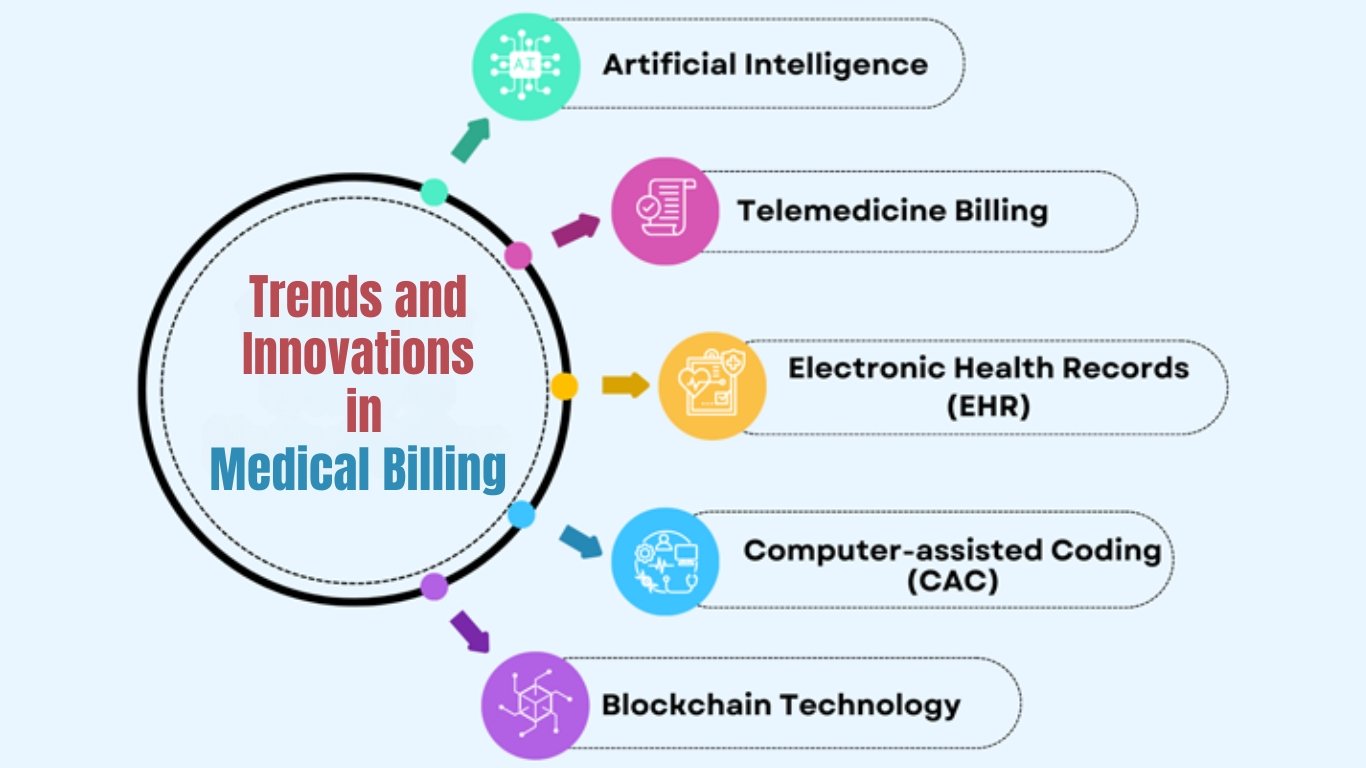The healthcare industry has witnessed significant upheaval in the last 10 years, and technological advancements have played a significant role in these changes. One area that has seen substantial innovation is medical billing. In order to ensure that patients receive the proper billing for the care they receive and that healthcare practitioners are compensated for their services, medical billing is a crucial component of healthcare administration. As a leading medical billing firm, MedSwiftCorp, we keep up with these changes to provide the best medical billing services Chicago has to offer. We will look at the most recent advancements in medical billing as well as the benefits for Chicago medical billing businesses, healthcare providers, and patients. MedSwiftCorp
Artificial intelligence (AI) and medical billing automation
Medical billing procedures are being revolutionized by AI and automation. Billing used to be a labor-intensive, manual process that was prone to human error. However, automation and artificial intelligence have made it possible to streamline many aspects of medical billing. AI-driven software, for instance, may code claims automatically based on patient records, speeding up the billing cycle and lowering errors. Automation also ensures that billing codes are updated in real time and in accordance with the latest regulations.
Benefits
Enhanced Efficiency:
Automation allows healthcare professionals to focus more on patient care by cutting down on the amount of time required to handle claims.
Reduced Errors:
AI-driven coding lowers the possibility of human error, leading to quicker claim denials and reimbursements.
Cost Savings:
By automating repetitive processes, healthcare providers can save administrative costs.
Telemedicine’s Impact on Medical Billing
The COVID-19 pandemic and the telemedicine boom that followed have had a substantial impact on medical billing. There are specific standards and guidelines that must be followed when billing for telemedicine services in contrast to regular in-person sessions. A leading medical billing provider, MedSwiftCorp, has responded to these advances by ensuring that telemedicine services are properly and lawfully billed.

Benefits
Flexibility:
Patients can receive care from the comforts of home, while healthcare professionals can reach out to underserved and rural areas.
Improved Cash Flow:
Accurate billing for telemedicine services ensures that providers get paid quickly, which increases cash flow.
Adherence:
Staying up to date on telemedicine billing codes ensures compliance with evolving regulations.
Value-Based Care: Potential Impact on Billing
The switch from fee-for-service to value-based therapy is one of the largest advancements in healthcare. In a value-based care paradigm, providers are compensated based on patient outcomes rather than the volume of services provided. This shift has required changes to medical billing practices. Value-based care billing involves keeping an eye on patient outcomes, managing complex treatment regimens, and settling on bundled payment arrangements.
Benefits
Better Patient Care:
Value-based care promotes better health outcomes by motivating physicians to focus on patient outcomes.
Value-based care prioritizes preventive treatment and the efficient management of chronic conditions, which has the potential to reduce healthcare costs.
New Payment Models:
Value-based care billing creates opportunities for new payment models that can be more sustainable and beneficial for providers.
Openness and Patient-Centered Invoicing
As patients take a more active role in their healthcare, they are calling for increased billing transparency. Enhancing patients’ understanding and transparency of the billing process is the aim of patient-centric billing techniques. Clear service itemization, upfront pricing quotations, and user-friendly payment channels are necessary for this.
Benefits
Improved Patient Satisfaction:
Patients feel more confident and satisfied when billing processes are transparent and easy to understand.
Reduced Disputes:
Clear and concise bills reduce the likelihood of miscommunication and late payments.
Improved Financial Planning:
Patients are better able to budget for their medical expenses when they receive upfront cost estimates.
Electronic Health Records in Billing Systems (EHR)
Another new innovation that is speeding up the medical billing process is the integration of electronic health records (EHR) with billing systems. Errors are reduced and human data entry is removed with EHR integration, which allows for smooth data transmission between billing systems and patient data.
Benefits
Seamless Data Flow:
Integration reduces the likelihood of inconsistencies by ensuring that patient data is accurately reflected in invoices.
Increased Productivity:
When data is automatically transmitted between billing and EHR systems, time and resources are saved.
Enhanced Compliance:
Integrated systems ensure compliance by more skillfully managing changes to laws and billing codes.
Blockchain Technology for Health Insurance
The healthcare industry’s medical billing division is progressively implementing blockchain technology. Blockchain offers a safe and transparent way to manage transactions related to medical billing. It enables decentralized record-keeping, which can reduce fraud and enhance data security.
Benefits
Data Security:
By providing an unchangeable record of transactions, blockchain enhances data security and reduces the likelihood of fraud. The decentralized nature of blockchain ensures that every party involved in a transaction has access to the same data, which improves transparency.
Efficiency:
Blockchain can speed up billing processes and save costs and delays by eliminating middlemen. www.medswiftcorp.com










